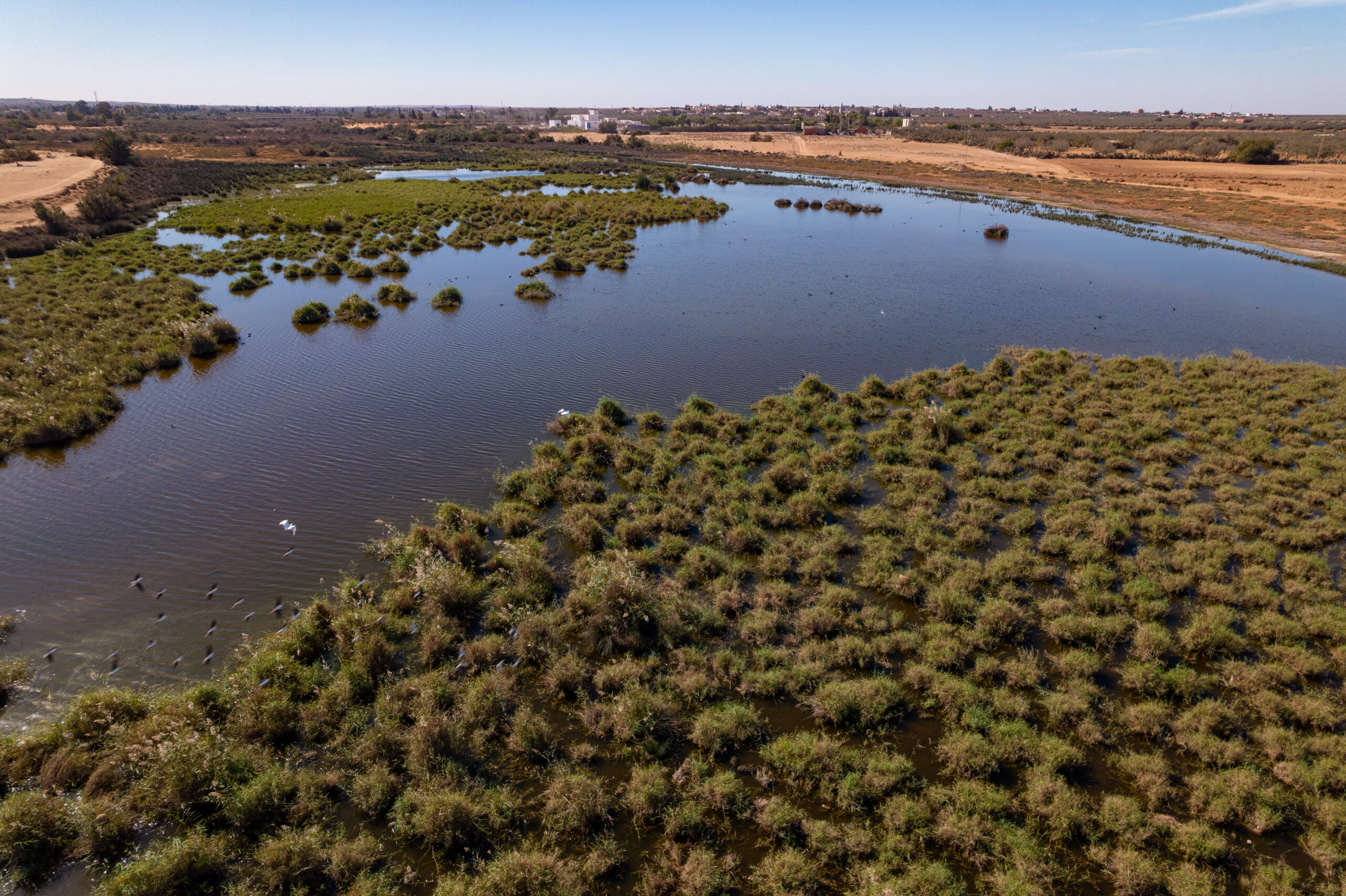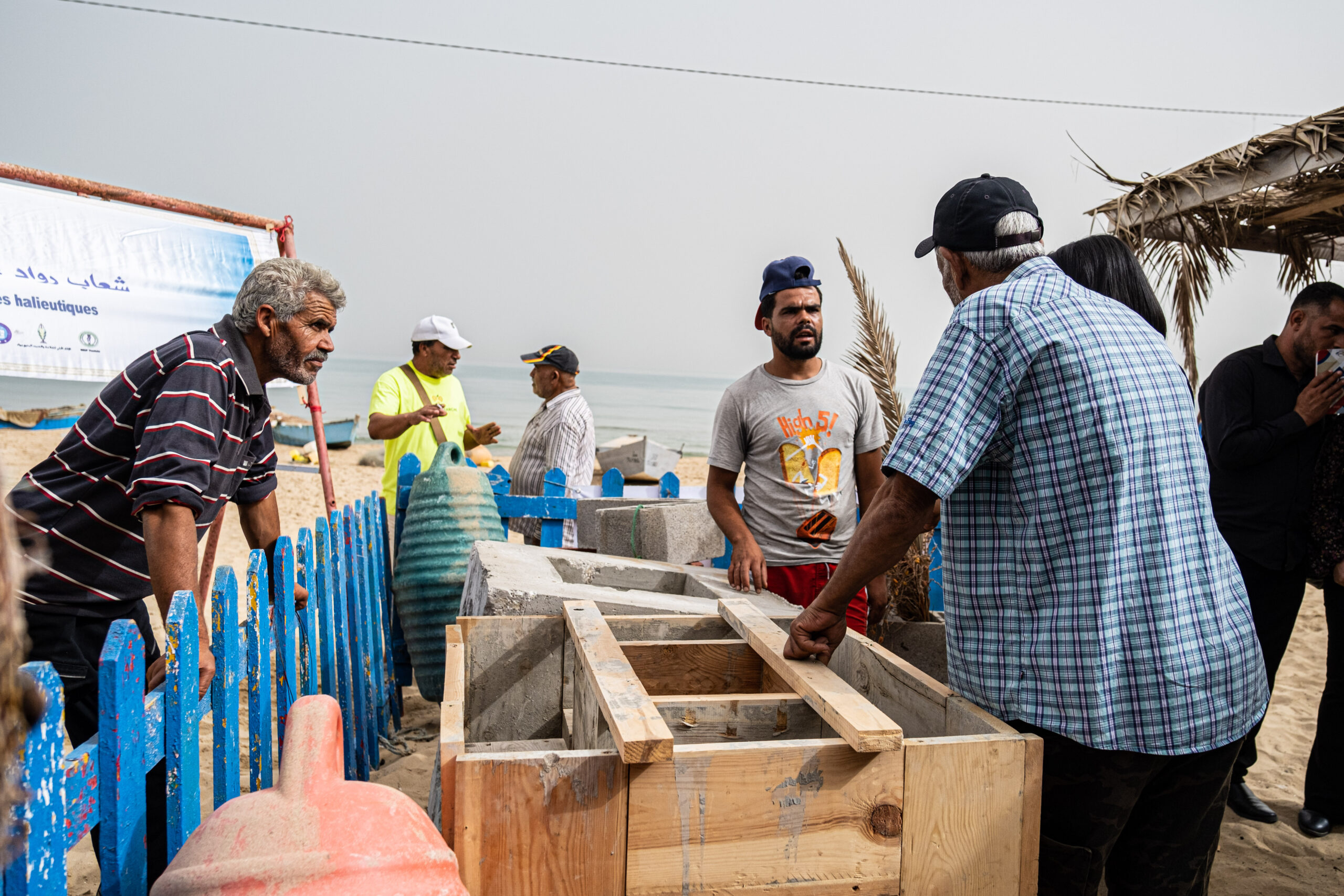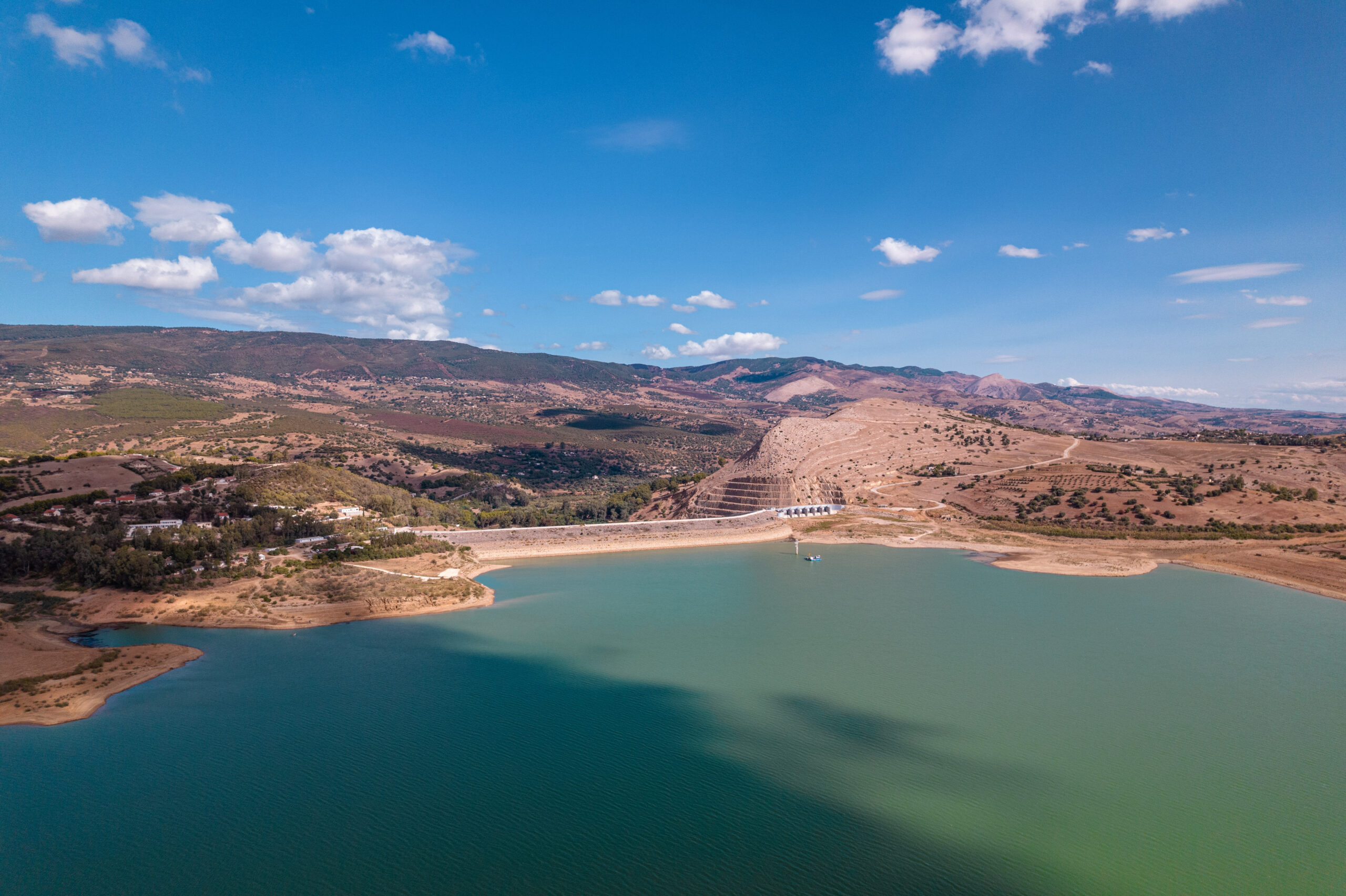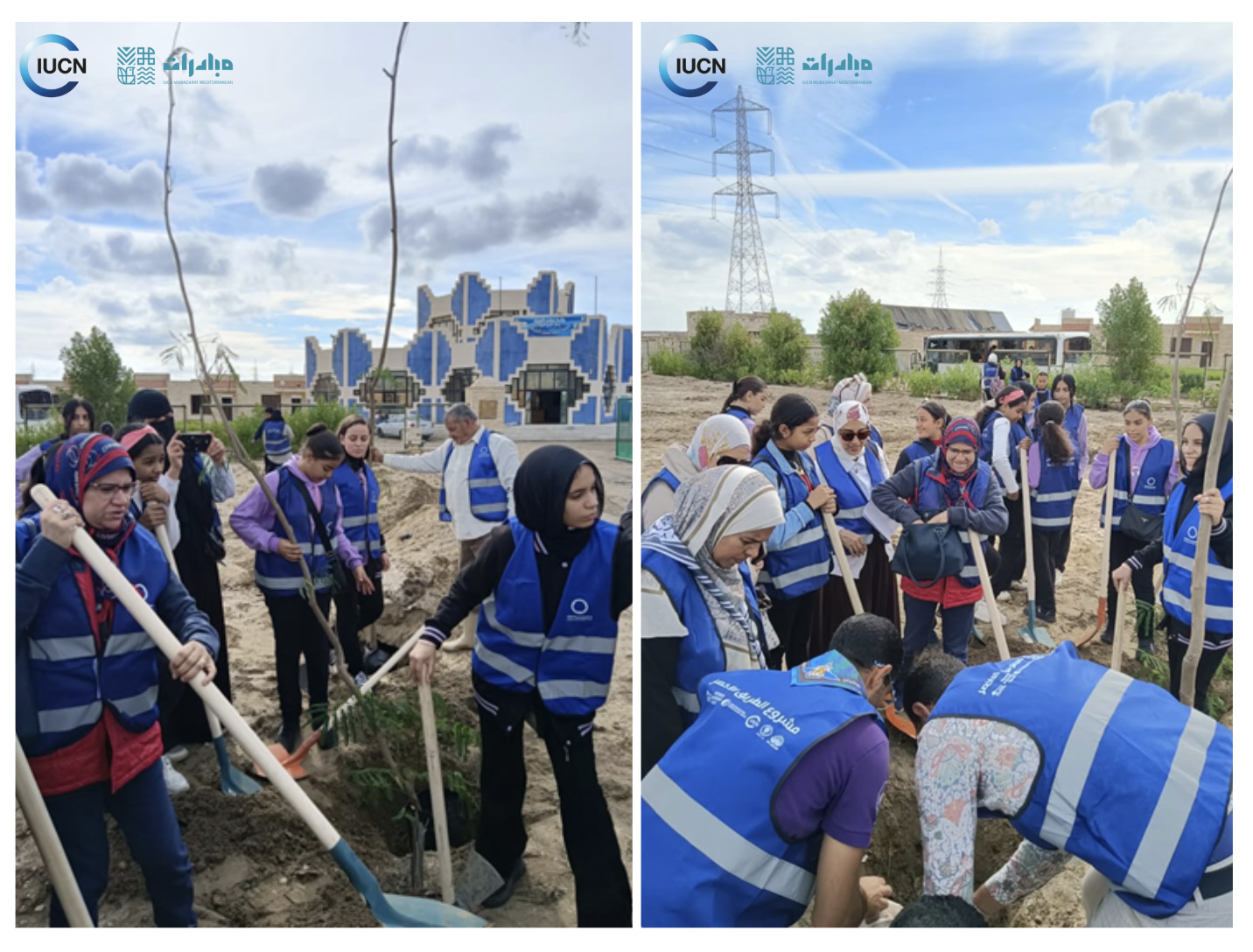Improving the agricultural and agri-food sector’s resilience and increasing its adaptability to climate change in Tunisia by the rollout of nature-based solutions.

For its project, Les Amis du Capte Tunisie has chosen to work with farmers in the Bizerte and Kef governorates, particularly around the Lake Bizerte nature reserve and the northern region of Kef. As both sites border protected and officially designated areas of high ecological value, they are notable for the variety of endemic Tunisian–Algerian fauna and flora and are visited by several migratory birds. However, strong demand from the agricultural sector has led to grain monoculture, intensive non-sustainable farming practices and overgrazing that, added to the near-total lack of trees on the farmland, have triggered a spiral of decline through soil erosion.
In response to these threats, the association is aiming to work with the region’s farmers to implement agro-ecosystems based around carob tree planting and improve the environment’s biodiversity. Known for their resilience and adaptability to the effects of climate change, agro-forestry systems will enhance biotope activity, provide food and habitats for certain animal species, and store water and carbon. The rollout of the good farming practices outlined in the training will also make it possible to limit the use of chemical inputs, protect the soil, reduce the overexploitation of natural resources (particularly water) and increase the farms’ productivity. The association has selected the carob as the main tree species to be inserted amongst the crops for its adaptability to the semi-arid Mediterranean climate, benefits for soil stability and added value for livestock feed.
The project also proposes launching a participatory research component supported by the pilot orchards and nurseries. Various research structures will study the selection of rootstocks adapted to drought and salinity to define an appropriate planting and fertilization action plan.
Anticipated results
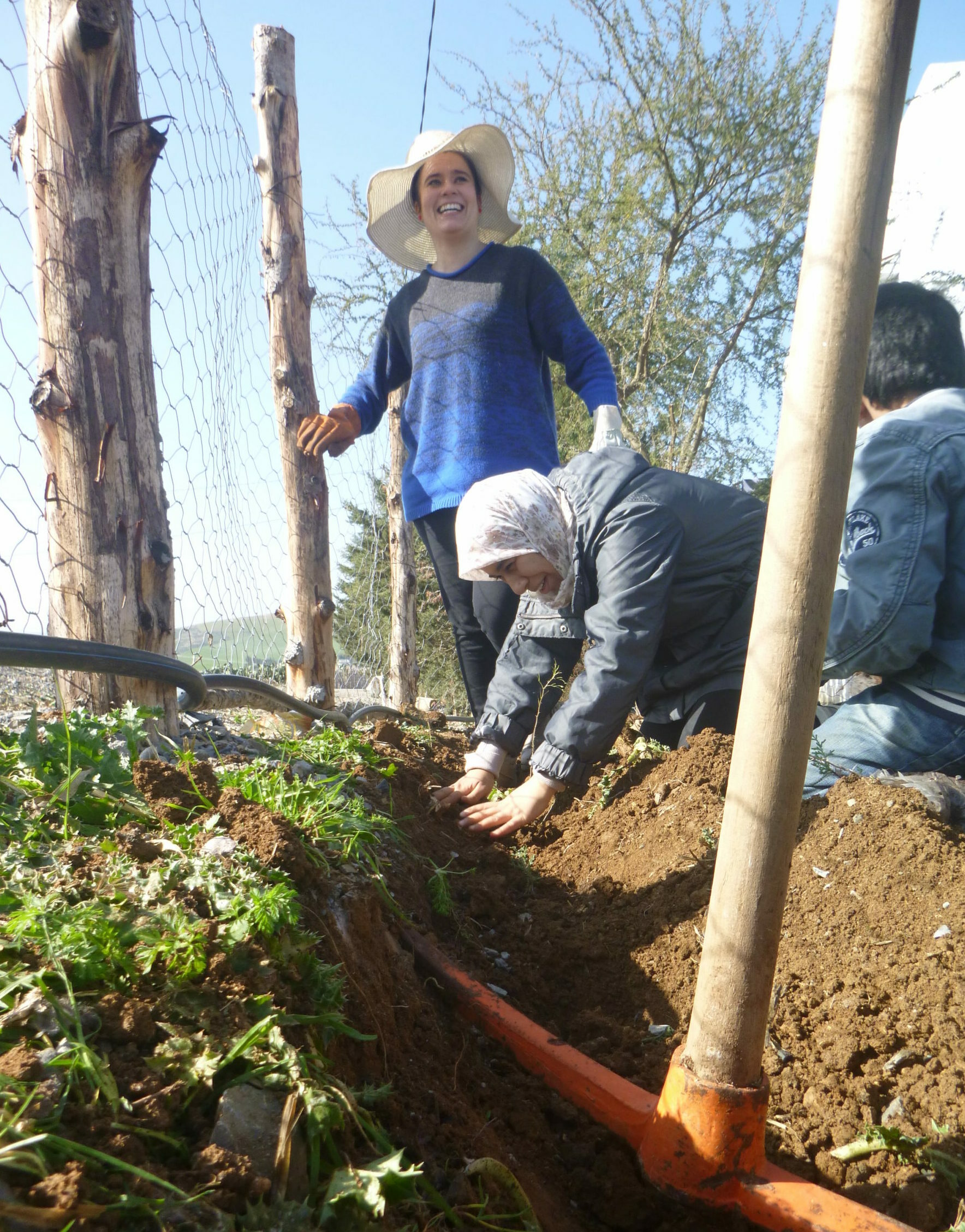 12 pilot carob tree orchards are planted, representing over 38 ha, on more than 10 partner farms
12 pilot carob tree orchards are planted, representing over 38 ha, on more than 10 partner farms
- At least 38 ha of degraded rangelands are regenerated in the Bizerte and Kef governorates
- A forest of approximately 19 ha of carob trees is planted in collaboration with the Kef CRDA of Jebel Essif nature reserve
- Meslin is sown in over 60 ha of intercropping areas in the pilot orchards
- An up-to-date digital app for monitoring and measuring ecosystem services with nature-based solutions is developed and used by technicians and farmers
- The private and institutional sector is made aware of nature-based solutions and the carob tree’s benefits amidst climate change
- Twenty or so agronomy students are educated on the importance of biodiversity and soil microbiology
Project video: PPI OSCAN 3 Les Amis du Capte
Contact: lesamisdecaptetunisie@gmail.com
Association website: Capte (Collectif d’Acteurs pour la Plantation et la Transition Environnementale)

